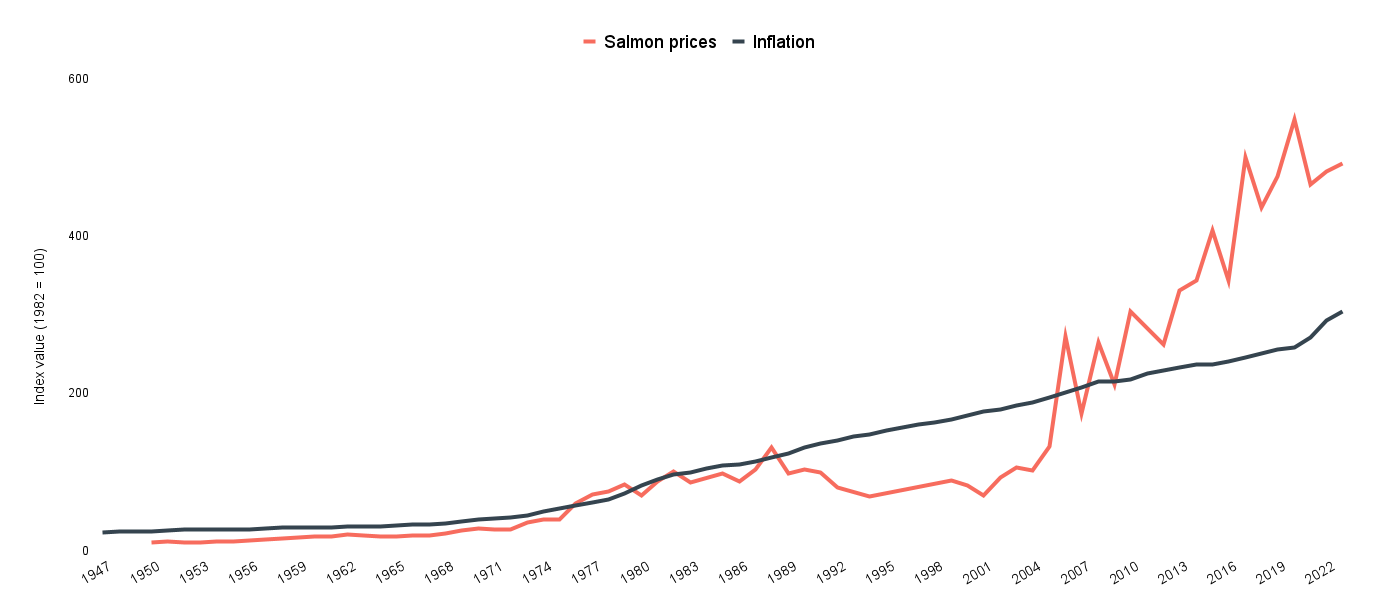Announcement
Why we're taking Texas to court
SB 261 took effect in Texas yesterday, banning the sale of cultivated foods in the state. As a result, our partners at Otoko have stopped the sale of Wildtype salmon in order to comply with this new law. You can still find Wildtype salmon served by Chef Yoshi Okai at his restaurant Hai Sí, in Aspen CO starting this week.
But, we’re not going quietly into the night. UPSIDE Foods will be joining us as plaintiffs in a lawsuit against the state of Texas for banning the sale of cultivated foods in the state. Taking legal action against the government is not a decision we took lightly, and we wanted to share our rationale.
Americans should have the freedom to choose what to eat
The last time we checked, the United States was still a free country. That means that we need to stand up and fight when special interests push for laws that restrict our freedoms. We respect the deep historical roots and tradition of ranchers in Texas. We understand the instinct to protect this heritage, but banning innovation is not the way to do this. It’s profoundly un-American and we believe that we need to take a stand here before more of our freedoms are taken away.
America needs more seafood, not less
Consider this Executive Order from the White House in April of this year. The United States is currently importing about 90% of the seafood that reaches Americans’ tables. That includes most of the salmon we eat in this country, which is imported from Europe and South America. Wildtype is an American small business trying to do exactly what this Executive Order envisions: make more seafood right here at home, instead of depending upon other countries for our fish.
Additionally, seafood has become less accessible in this country. Just look at salmon prices (in red) vs. inflation (in black) below. We saw real improvements in salmon prices when fish farming took off in the 1980s and 1990s, but salmon prices have risen five times faster than inflation in the last fifteen years as demand has outpaced supply. If we want healthy seafood to be accessible to more Americans and produced in the United States, we need to embrace responsible innovation like what Wildtype brings to the table. (Sources: St. Louis Fed Producer Price Index by Commodity: Salmon (WPU02230103) + CPI (CPIAUCSL); Bureau of Labor Statistics).

Making America healthy requires innovation
Finally, one of the reasons we chose to focus on seafood is the clear opportunity to remove the complexity associated with seafood, namely the contaminants that have become sadly pervasive in so much of our seafood supply. Nobody is excited when they find a worm or parasite in their sushi. No parent wants to give their children fish with high levels of mercury or arsenic. Nobody’s asking for seconds of antibiotics used in farmed fish. Wildtype’s production bypasses the pollutants in our waterways that find their way into our fish. That includes microplastics as well. In fact, the FDA under Secretary Kennedy identified a number of substances for post-market review, including heavy metals. Wildtype salmon is one of the only methods to produce seafood that can significantly reduce or even eliminate most contaminants found in fish.
Concluding thoughts
The ban in Texas is about one thing: protecting a powerful industry in Texas from out-of-state competition by stripping consumers of their freedoms. Even if you hate the idea of cultivated seafood, we hope you agree that we’re on a slippery slope if we’re handing over intensely personal choices like what to feed ourselves to the government. We can, and must, do better if we want to keep America the land of the free.
